All Stories
-
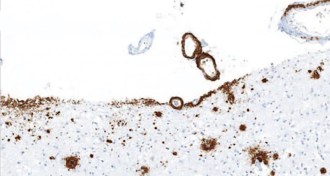 Neuroscience
NeuroscienceYear in review: Alzheimer’s protein behaves like a prion
Under rare conditions, an Alzheimer’s-related protein may have jumped between people, scientists reported this year.
-
 Planetary Science
Planetary ScienceYear in review: Best evidence yet for water on Mars
New data from the Mars Reconaissance Orbiter supported the presence of salty water on Mars.
-
 Earth
EarthYear in review: Pacific Plate slides over slick layer
Some explosive science offered a glimpse into how tectonic plates slide around Earth’s surface.
-
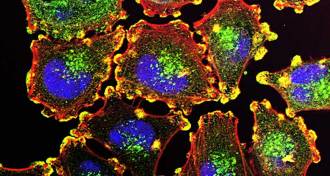 Genetics
GeneticsYear in review: Cancer genetics grows up
Researchers looking for mutations linked to cancer have found that not all genetic alterations should be targeted equally.
-
 Animals
AnimalsYear in review: Woes of artificial lighting add up for wildlife
Studies published this year add dodging death, flirting and mothering to the tasks that artificial light can discombobulate in wild animals.
By Susan Milius -
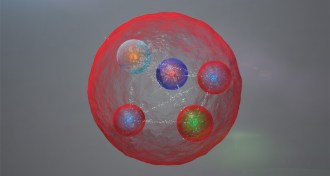 Particle Physics
Particle PhysicsYear in review: Collider creates pentaquarks
Two particles discovered in 2015 are each composed of five quarks.
By Andrew Grant -
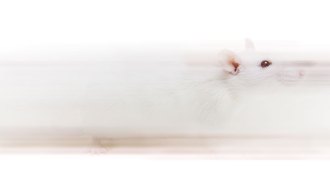 Neuroscience
NeuroscienceYear in review: ‘Speed cells’ help make navigation possible
The discovery of speed cells in the brain filled in a missing piece in the understanding of how the brain creates an internal map of the world.
-
 Environment
EnvironmentYear in review: BPA alternatives aren’t benign
Evidence is accumulating that at least one popular alternative to bisphenol A can enter the body and trigger developmental and physiological changes.
By Janet Raloff -
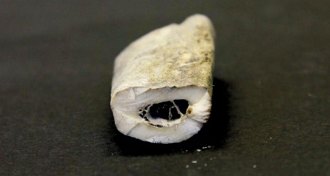 Animals
AnimalsYear in review: New dates, place proposed for dogs’ beginnings
This year’s dog research suggested older origins and a new location of domestication for man's best friend.
-
 Humans
HumansYear in review: Native Americans are Kennewick kin
Ancient DNA identified 8,500-year-old Kennewick Man as a Native American relative.
By Bruce Bower -
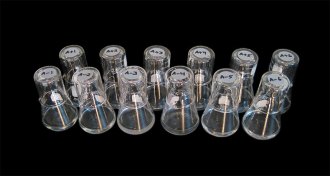 Genetics
GeneticsYear in review: Fluke extinction surprises lab
A die-off of bacteria in a carefully controlled lab experiment offered an evolutionary lesson this year: Survival depends not only on fitness but also on luck.
-
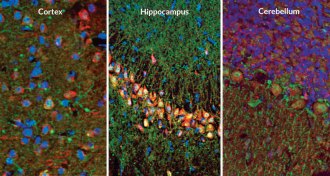 Neuroscience
NeuroscienceYear in review: Gaps in brain nets might store memories
Holes in nets that surround nerve cells may store long-term memories, scientists proposed this year.